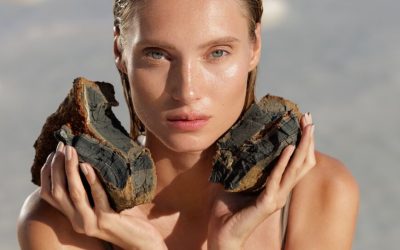The sun may be a source of warmth and light, but it can also cause significant harm to our skin if we don’t take the necessary precautions. While many people are diligent about applying sun protection during the summer months, sun damage can occur all year round. Whether it’s a bright winter morning, a crisp autumn day, or the blazing summer sun, the risk of skin damage from UV rays remains ever-present. Protecting our skin from sun exposure is a year-long commitment, and understanding the factors that can reduce the effectiveness of sun protection products is key to staying safe.
Basic Sun Protection Tips
We’ve all heard about the basic sun protection strategies, but it’s important to revisit these principles to ensure we’re following them correctly.
- Choose a Broad-Spectrum Sunscreen: Your sunscreen should offer broad-spectrum protection with a minimum SPF of 30, ensuring that it blocks both UVA and UVB rays. UVA rays are responsible for skin ageing, while UVB rays cause sunburn. The higher the SPF, the greater the protection, but anything above 50 SPF offers marginally increased protection.
- Seek Shade: The sun’s rays are strongest between 10 am and 4 pm. Staying in the shade during these hours can significantly reduce your exposure to harmful UV radiation. If you’re outdoors, consider using an umbrella or finding cover under trees to limit direct sun exposure.
- Reapply Sunscreen Regularly: Even if your sunscreen is water-resistant, it’s important to reapply it every two hours, and more frequently if you’re swimming or sweating. A common mistake is applying too little sunscreen. Make sure to use a generous amount for thorough coverage.
- Wear Protective Clothing: Long-sleeved shirts, trousers, wide-brimmed hats, and UV-protective sunglasses provide an additional barrier against UV rays. Look for clothing made from tightly woven fabrics that offer more protection than lighter, looser materials.
- Be Aware of Reflective Surfaces: Surfaces like snow, water, sand, and even asphalt can reflect UV rays, amplifying their intensity. Even on cloudy days, or when you’re in shaded areas, reflected UV rays can cause skin damage.
- Hydrate Regularly: Sun exposure can lead to dehydration, especially during hot weather. Keeping your body hydrated helps maintain healthy skin and prevents sun-related issues such as heatstroke and sunburn.
Hidden Factors That Affect Sun Protection
While the above guidelines are commonly known, there are some lesser-known factors that can reduce the effectiveness of your sun protection strategy. Being aware of these factors can make all the difference when it comes to safeguarding your skin.
- Anti-Ageing Skincare Products: Active ingredients such as alpha hydroxy acids (AHAs), retinol, and beta hydroxy acids (BHAs) are often used in anti-ageing products. However, these ingredients can increase your skin’s sensitivity to UV rays, making you more prone to sunburn and irritation. Additionally, exposure to sunlight can degrade the efficacy of these ingredients, reducing their benefits over time. To minimise the risk, use products containing these ingredients at night and always follow up with daily sunscreen.
- Medications That Cause Photosensitivity: Certain medications, including antidepressants like tricyclic antidepressants (TCAs) and selective serotonin reuptake inhibitors (SSRIs), can increase sensitivity to sunlight. This condition, known as photosensitivity, can result in an increased risk of sunburn or rashes. Medications that cause photosensitivity can also become less effective when exposed to UV radiation. Always consult your doctor or pharmacist about the potential effects of sun exposure on your medication.
- Antibiotics and UV Exposure: Similar to medications, certain antibiotics are vulnerable to photo-degradation, where exposure to UV rays alters their chemical structure and reduces their effectiveness. To prevent this, store medications in opaque containers and avoid direct sunlight during the course of treatment. If you are prescribed antibiotics, it’s wise to ask your healthcare provider whether sun exposure could affect your medication.
- Perfumes, Essential Oils, and Aftershave: Many scented products contain ingredients that can cause skin reactions when exposed to sunlight, a condition known as photo-toxicity or photo-allergy. These reactions often result in hyperpigmentation, irritation, or even severe sunburn. Be cautious when applying perfumes or essential oils to sun-exposed areas of your skin, especially on sunny days.
- Foods and Drinks That Increase Sun Sensitivity: Did you know that certain foods and beverages can make your skin more sensitive to the sun? Citrus fruits, such as oranges and lemons, contain psoralens and furocoumarins that can increase your risk of sunburn. Alcohol, on the other hand, dilates blood vessels and dehydrates the body, which can exacerbate sunburn. Spicy foods, high-glycemic snacks, and fried or processed foods can all contribute to inflammation, making sunburn more severe and delaying recovery.
The Importance of Year-Round Sun Protection
In the areas, where overcast days are frequent, many people may assume that sun protection is only necessary during the summer months. However, UV rays can penetrate clouds and still damage the skin. Moreover, cold climates with snow can increase UV exposure due to reflection.
Australia, often referred to as having one of the highest rates of skin cancer globally, offers a stark reminder that sun safety is a year-long issue. Sun damage is cumulative, which means that even brief periods of exposure throughout the year can add up over time, leading to premature skin ageing, sunburn, and an increased risk of skin cancer. Investing in a good sunscreen and practising sun safety, regardless of the season, can help ensure your skin remains healthy for years to come.




